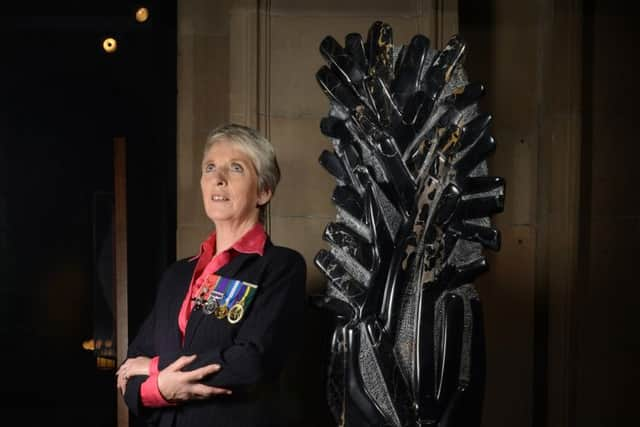Kirk Moderator to lead tributes to Arras' Scottish fallen


Now, a century on from the carnage of the Battle of Arras, the Moderator of the General Assembly of the Church of Scotland and his family are to pay a poignant personal tribute to the fallen.
The Right Rev Dr Russell Barr and his wife, Margaret, will lead prayers this Sunday at a special centenary service at the northern French town’s Faubourg d’Amiens Commonwealth War Graves cemetery.
Advertisement
Hide AdAdvertisement
Hide AdMrs Barr’s great uncle, David Wyllie, was among those who lost their lives in the six week-long battle, and she will lay flowers on his grave as part of the remembrance events.


It will be a moving moment for Mrs Barr, who never knew her great uncle but counts his artefacts as among her most cherished possessions.
Private Wyllie signed up to fight for his country on 23 June 1915 at the age of 27. After serving with the 14th Battalion Argyll and Sutherland Highlanders, he was moved to the 1/7th Battalion Black Watch.
While little is known of his military service, he sent postcards home of quaint French villages, their names blacked out so as to thwart enemies trying to intercept them. But when his father, Robert, a farmer in North Berwick, received a telegram on 30 April 1917, there was devastating news.
“Regret,” it began. “No 5640 Pt. David Wylie 1/7 Black Watch reported 24 April died from gunshot wounds in No 41 Casualty Clearing station France. Officer in charge TF. Records, Perth.”


Pte Wyllie, it transpired, had sustained an injury to his foot, but while receiving treatment, the medical facility was bombed and he suffered fatal abdominal injuries. He was 29.
Mrs Barr said: “It’s a huge privilege to go out to Arras and represent the family, and to lay a wreath. It will be quite poignant. I will go and see his grave at Duisans Cemetery and lay flowers there.
“I think my father would be very proud and happy that one of his family will be there at the ceremony. It will be a very emotional day.”
Advertisement
Hide AdAdvertisement
Hide AdMrs Barr always knew about her great-uncle’s service but it was not until she looked through records at Tyne Cot War Graves cemetery near Ypres that she realised the magnitude of his sacrifice.
She added: “It is important. We always said we will remember them, but for my generation WW1 was almost forgotten. So I didn’t really connect it up until I went to Tyne Cot and saw his name on the computer. That was when it really hit home.”